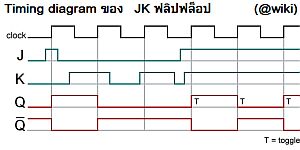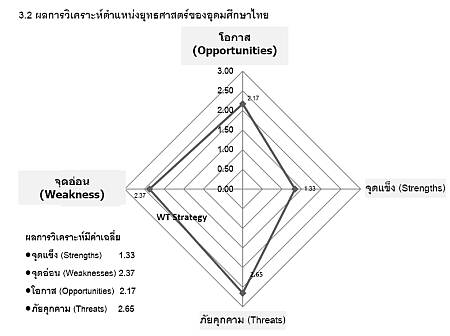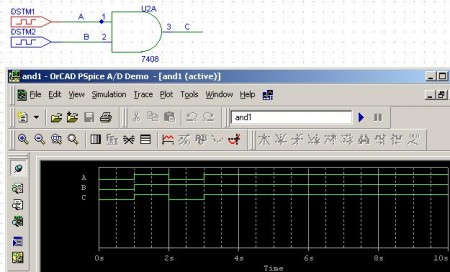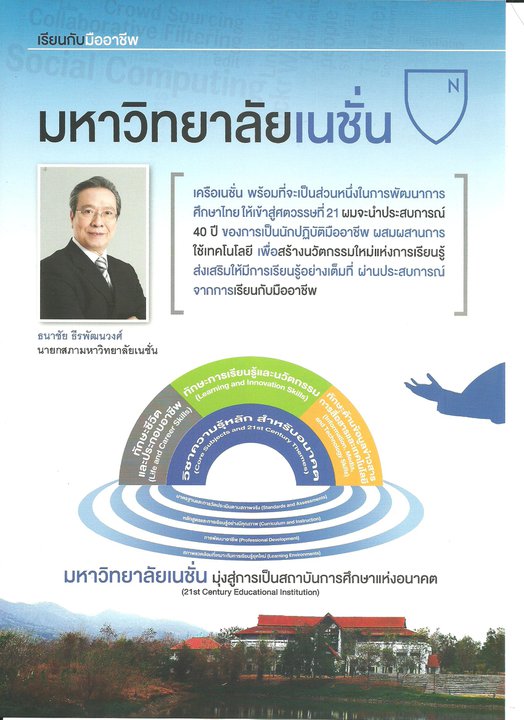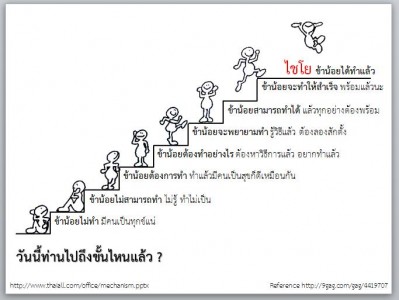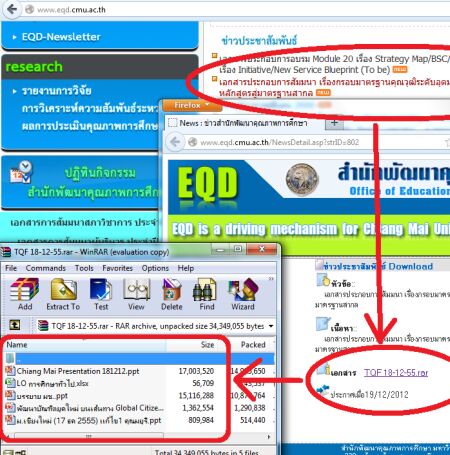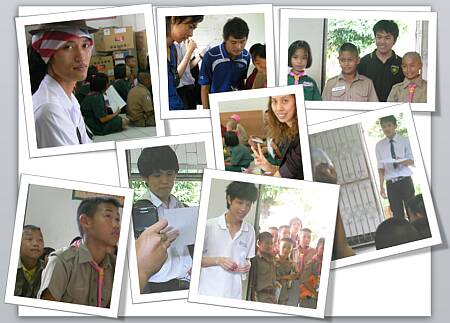บีบให้เซ็นใบลาออกล่วงหน้า เป็นเทคนิคใหม่ของสถาบันการศึกษาไทย
ระวังบริษัทเอาเทคนิคนี้ไปใช้นะครับ
(ใน blog นี้ขอสงวนชื่อโรงเรียน ชื่อกระทรวง และชื่อรัฐมนตรีนะครับ)
http://www.manager.co.th/Daily/ViewNews.aspx?NewsID=9560000001281
ณ บ้านพระอาทิตย์ โดย : ปานเทพ พัวพงษ์พันธ์
“หมอนิด” ผู้ซึ่งเป็นผู้เปิดประเด็นในเรื่องความน่าเคลือบแคลงสงสัยในการดำเนินงานที่โรงเรียนอ… เแสดงให้เห็นว่าแม้แต่บุคคลภายนอกก็ยังห่วงใยโรงเรียนแห่งนี้ และเป็นผลทำให้ศิษย์เก่าและผู้ปกครองที่โรงเรียนอ… แห่งนี้ต้องแสวงหาข้อเท็จจริงที่เกิดขึ้น นอกเหนือจากนั้นยังเกิดปรากฏการณ์ศิษย์เก่าโรงเรียนอื่นๆในเครือเซนต์คาเบรียล รวมถึงศิษย์เก่าในโรงเรียนฟุตบอลจตุรมิตร (สวนกุหลาบ,เทพศิรินทร์, และกรุงเทพคริสเตียน) ที่ต่างแสดงความห่วงใยเช่นกัน เมื่อทราบข่าวดังกล่าว สะท้อนให้เห็นว่า สังคมได้ตระหนักในคุณค่าทางประวัติศาสตร์อันยาวนานของโรงเรียนเก่าแก่แห่งนี้ที่ตั้งมาเป็นเวลา 127 ปีมาแล้ว
เพราะความจริงเป็นสิ่งไม่ตายดังนั้นหากข้อห่วงใยของ “หมอนิด” เป็นเรื่องจริง สิ่งที่ผู้บริหารของโรงเรียนอ… ควรทำมากที่สุดก็ คือ ปรับปรุงเปลี่ยนแปลงแก้ไขใหม่ให้ถูกต้อง หรือหากผู้บริหารโรงเรียนไม่ดีก็ไม่ควรอยู่ในตำแหน่งต่อไป ในทางตรงกันข้ามหากเห็นว่าข้อมูลในการนำเสนอนั้นไม่เป็นความจริงผู้บริหารของโรงเรียนก็ควรต้องชี้แจงทำความเข้าใจในสิ่งที่เกิดขึ้น เพราะความจริงเป็นสิ่งไม่ตาย และความจริงเท่านั้นที่จะหยุดความเสียหายของโรงเรียนแห่งนี้ได้
ทบทวนกันอีกครั้งถึงข้อสงสัยของ “หมอนิด” ที่ได้โพสต์ข้อความบางตอนในเฟสบุ๊คของตนเองเมื่อวันที่ 22 ธันวาคม พ.ศ. 2555 ความตอนหนึ่งที่ต้องแสวงหาขอ้เท็จจริง ความตอนหนึ่งว่า
“ครูทุกคนในโรงเรียนถูกบีบให้เซ็น…ใบลาออกล่วงหน้า ถ้าครูคนไหนไม่ยอมเซ็นใบลาออก จะถูกให้ออก พร้อมจ่ายค่าชดเชยให้ เรื่องนี้ไม่มีสื่อไหนลงข่าวเลย ถูกปิดเงียบเหมือนอยู่ในแดนสนธยา ครูหลายคนแต่งชุดดำประท้วงเงียบ ๆ แต่คงไม่เป็นผล เพราะมีครูบางคนถูกเรียกเข้าไปกล่อมถึงในกระทรวง”
และ
“ฝ่ายบริหารที่เป็นใหญ่มีชื่อย่อว่า “อ” ได้ร่วมมือกับนักการเมืองผู้หนึ่ง และข้าราชการบางคนสมรู้ร่วมคิดไปแก้กฎหมายการรวมเด็กนักเรียนชั้นประถม แถวซอยเซนต์หลุยส์ ให้เอามารวมเข้ากับเด็กนักเรียนมัธยมที่บางรัก ทั้ง ๆ ที่มีกฎห้ามเอาไว้ ครูส่วนมากไม่ยอมมาเซ็นชื่อก็จะถูกข่มขู่ คุกคาม เจตนาที่ให้ครูเซ็นชื่อลาออกล่วงหน้า ก็เพื่อว่าถ้าวันไหนครูคนไหนเอะอะโวยวาย หรือครูคนไหนที่ไม่ทำตามเจตนารมณ์ ของผู้มีอำนาจ เขาก็จะเอาใบลาออกที่ครูได้เซ็นชื่อไว้ มาแสดงว่าครูมีความจำนองที่จะลาออกเอง…”
แต่บทความที่ได้เขียนเมื่อสัปดาห์ที่แล้วในหัวข้อ “ขายโรงเรียนอ…. !?” เมื่อเวลาผ่านไป 1 สัปดาห์จนถึงวันส่งต้นฉบับนี้ ก็ไม่ได้รับชี้แจงข้อมูลเพิ่มเติมแต่ประการใด?
แหล่งข่าวจากศิษย์เก่าของโรงเรียนแห่งนี้ที่ได้เคยเผยแพร่วาทกรรมประโยคทองของ”ผู้บริหารคนหนึ่ง” ในการประชุมกับผู้ปกครองว่า
“คุณมีนักเลง ผมก็มีนักเลง คุณมีพวก ผมก็มีพวก ผมมีคนรู้จักในกระทรวงศึกษาธิการ”
ถ้าคำพูดดังกล่าวเป็นความจริงก็สะท้อนให้เห็นว่ามีผู้บริหารบางคนของโรงเรียนอ… ไม่ได้มีพฤติกรรมเหมือนนักบวช อีกทั้งยังอวดอ้างว่ามีสายสัมพันธ์ที่เชื่อมโยงกับ นักเลง ข้าราชการ หรือฝ่ายการเมืองได้
มีคำถามพื้นฐานเริ่มต้นว่าโรงเรียนอ… เป็นโรงเรียนเอกชนเหตุใดจะมีข้าราชการหรือฝ่ายการเมืองไปเกี่ยวข้องได้อย่างไร?
คำตอบข้อแรก โรงเรียนอ… อยู่ภายใต้พระราชบัญญัติโรงเรียนเอกชน พ.ศ. 2550 แก้ไขเพิ่มเติม (ฉบับที่ 2) พ.ศ. 2554 ซึ่งอยู่ภายใต้การกำกับดูแลของคณะกรรมการส่งเสริมการศึกษาเอกชนซึ่งมี รัฐมนตรีว่าการกระทรวงฯ เป็นประธาน และสามารถส่งเสริมช่วยเหลือด้านงบประมาณได้แม้แต่นโยบายเงินเดือนปริญญาตรี 15,000 บาท ในทุกวันนี้ก็เป็นงบประมาณที่คณะกรรมการส่งเสริมการศึกษาเอกชนก็เตรียมให้กับครูในโรงเรียนเอกชน หรือหากสมมติว่าโรงเรียนไม่มีทุนเพียงพอที่จะดำเนินการต่อไป เลขาธิการคณะกรรมการส่งเสริมการศึกษาเอกชนหรือผู้อำนวยการสำนักงานเขตพื้นที่ ซึ่งเลขาธิการคณะกรรมการส่งเสริมการศึกษาเอกชนมอบหมาย ก็สามารถออกคำสั่งให้โรงเรียนอยู่ในความควบคุมของสำนักงานคณะกรรมการส่งเสริมการศึกษาเอกชนหรือสำนักงานเขตพื้นที่การศึกษาได้
คำตอบข้อที่สอง นายชาญวิทย์ ทับสุพรรณ รองเลขาธิการ รักษาเลขาธิการคณะกรรมการส่งเสริมการศึกษาเอกชน (กช.) กำกับดูแลโรงเรียนเอกชน ซึ่งได้ให้สัมภาษณ์กับมติชนออนไลน์ เมื่อวันที่ 30 ธันวาคม พ.ศ. 2555 ว่า โรงเรียนอ… ได้หารือในการยุบรวมจริงภายหลังจากที่ได้มีการออก “กฎกระทรวง” ฉบับหนึ่งที่มีชื่อว่า…
“การขอรับใบอนุญาตให้จัดตั้งโรงเรียนในระบบ การกำหนดรายการและการขอเปลี่ยนแปลงรายการในตราสารจัดตั้ง และการกำหนดขนาดที่ดินที่ใช้เป็นที่ตั้งของโรงเรียนในระบบ พ.ศ. 2555” ลงนามโดย รัฐมนตรีว่าการกระทรวง เมื่อวันที่ 5 กันยายน พ.ศ. 2555
สาระสำคัญของกฎกระทรวงนี้ทำให้สิ่งที่ไม่เคยทำได้ ก็อาจจะทำได้ โดยเฉพาะการยุบรวมโรงเรียนที่อยู่ห่างกันไม่เกิน 3 กิโลเมตร ตามกฎกระทรวงข้อ 28 ซึ่งกำหนดให้การเพิ่มขนาดของที่ดินที่ใช้จัดตั้งโรงเรียนในระบบจะต้องมีพื้นที่ไม่น้อยกว่า 200 ตารางวา และอยู่ห่างจากโรงเรียนที่ได้รับอนุญาตในระบบตามเส้นทางคมนาคมไม่เกิน 1 กิโลเมตร หรือในกรณีที่ที่ดินซึ่งต้องการขยายอยู่ห่างเกิน 1 กิโลเมตร แต่ไม่เกิน 3 กิโลเมตร ก็ให้สำนักงานเขตพื้นที่การศึกษาประถมศึกษาหรือสำนักงานการศึกษาเอกชนอำเภอ ส่งคำขอและเอกสารประกอบคำขอให้เลขาธิการคณะกรรมการส่งเสริมการศึกษาเอกชนเป็นผู้พิจารณาอนุญาต
ช่างบังเอิญอย่างพอดิบพอดี เมื่อกฎกระทรวงดังกล่าวออกมา ปรากฏว่าโรงเรียนแรก ๆ ที่ขอหารือในการยุบรวมโรงเรียนอย่างรวดเร็วก็คือ “โรงเรียนอ…” !?
แม้ว่าในกฎกระทรวงจะระบุในข้อ 26 ถึงการขอเปลี่ยนแปลงรายการในตราสารจัดตั้งจะต้องได้รับความเห็นชอบจากคณะกรรมการบริหารของโรงเรียนในระบบก่อนยื่นคำขอ แต่เมื่อดูตามพระราชบัญญัติ โรงเรียนเอกชน พ.ศ. 2550 แล้ว คณะกรรมการบริหารประกอบไปด้วย ผู้รับใบอนุญาตผู้จัดการ ผู้อำนวยการ ผู้แทนผู้ปกครอง ผู้แทนครู และผู้ทรงคุณวุฒิอย่างน้อย 1 คนแต่ไม่เกิน 3 คน ทำให้เสียงในการควบคุมก็ยังอยู่ที่ผู้บริหารโรงเรียนอยู่ดี
แต่ที่ไม่น่าเชื่อก็คือ แทนที่กระบวนการจะเป็นไปตามขั้นตอน ครูโรงเรียนอ… กลับถูกยื่นใบลาออกให้เซ็นล่วงหน้า โดยอ้างว่าเพื่อที่จะได้ไปยุบควบรวมโดยไม่ต้องสอบถามความเห็นจากครูก่อน ไม่ได้มีการพูดถึงค่าชดเชยในการยุบโรงเรียน หรือในอีกด้านหนึ่งไม่ได้มีการพูดถึงสิทธิการนับอายุงานของครูที่กำลังจะต้องเซ็นใบลาออกเพื่อเข้าไปสู่ภายใต้การบริหารของโรงเรียนอ… แผนกมัธยม (บางรัก)
ด้วยเหตุนี้จึงมีครูโรงเรียนอ… จำนวนไม่น้อยไม่ยอมเซ็นใบลาออกดังกล่าว และแต่งชุดดำประท้วงเมื่อปลายปีที่แล้ว
คำถามคือโรงเรียนอ… แผนกประถมซึ่งแยกออกมาจากบางรัก เป็นอีกโรงเรียนหนึ่ง ซึ่งอยู่ที่เซ็นต์หลุยส์ ซอย 3 ถนนสาธร มาตั้งแต่ปี พ.ศ. 2509 สามารถมีเงินหล่อเลี้ยงอยู่ได้ด้วยตัวเองและพัฒนาการศึกษาได้โดยไม่เคยมีปัญหาใด ๆ เหตุใดจึงคิดจะมายุบรวมกันเมื่อเวลาผ่านไปเกือบ 47 ปี !?
คำตอบไม่น่าจะอยู่เพียงแค่ “ยุบรวมฝ่ายบริหาร” เพื่อประหยัดงบประมาณ เพราะนั่นเท่ากับการแสดงถึงปัญหาทางการเงินบางประการกำลังเกิดขึ้นกับโรงเรียนอ… แต่อีกด้านหนึ่งที่ยังไม่ได้มีการถามกันอย่างตรงไปตรงมาก็คือ “การยุบรวมทรัพย์สินที่ดิน และรวมบัญชี” เข้าด้วยกันเพื่อดำเนินการอะไรบางอย่างต่อไปในอนาคต จริงหรือไม่ !?
เพราะมองข้ามไปไม่ได้ว่านักเรียนประถมศึกษาปีที่ 1 (ป.1) ผู้ปกครองเกือบทั้งหมดนอกจากต้องจ่ายค่าเทอมแล้ว ยังต้องจ่ายค่าแรกเข้าบำรุงการศึกษาพิเศษให้กับโรงเรียนอีกด้วยจริงหรือไม่? ซึ่งแน่นอนว่ารายได้ตรงนี้ของฝ่ายประถมย่อมมีมากกว่าฝ่ายมัธยมเป็นแน่ เพราะหลังจาก ป. 1 แล้ว ก็จะมีนักเรียนมาเข้าใหม่หลังจากนั้นน้อยลง และที่สำคัญการรวมทรัพย์สินให้มากขึ้นใจกลางเมืองถูกตั้งข้อสงสัยว่าจะนำทรัพย์สินรวมถึงที่ดินเหล่านี้ไปดำเนินการอย่างไร?
ความจริงนับตั้งแต่ตั้งโรงเรียนนี้มา ไม่ว่า ศิษย์เก่า ครู ผู้ปกครอง หรือนักเรียน ไม่เคยมีใครมีความคิดจะก้าวก่ายการเงินของมูลนิธิคณะภราดาเซนต์คาเบรียล หรือ ผู้บริหารโรงเรียนอ… ว่านำเงินไปใช้อย่างไร มีประสิทธิภาพหรือไม่ ตราบใดที่ไม่กระทบคุณภาพการเรียนการสอนหรือวิถีชีวิตของนักเรียน หรือกระทบค่าใช้จ่ายของผู้ปกครอง
แต่เหตุเกิดเริ่มต้นขึ้นหลังจากมีความพยายามในการลงทุนครั้งใหญ่ที่โรงเรียนอ… ไปลงทุนสร้าง โรงเรียนอ… ภาคภาษาอังกฤษ ที่พระราม 2 คลองโคกขาม ตำบลพันท้ายนรสิงห์ อำเภอเมือง จังหวัดสมุทรสาคร โดยเข้าไปซื้อที่ดินจำนวน 231 ไร่ ใกล้กับบริษัทอสังหาริมทรัพย์ชื่อดังแห่งหนึ่ง โดยได้เริ่มสร้างมาตั้งแต่เดือนมกราคม พ.ศ. 2552 และตั้งเป้าจะสร้างเสร็จร้อยละ 75 ในปี พ.ศ. 2558
การลงทุนครั้งใหญ่ที่โรงเรียนอ… ภาคภาษาอังกฤษ มีทั้งต้นไม้ใหญ่ มีสวนสาธารณะ ทะเลสาบ ระบบไฟฟ้าใต้ดิน อาคารเรียนทันสมัย มีสนามกีฬาฟุตบอลสเตเดียมขนาด 15,000 ที่นั่ง สนามซ้อมฟุตบอล 2 สนาม โรงยิมเนเซี่ยมที่มีทั้ง 2 สนามบาสเก็ตบอล สนามวอลเลย์บอล สนามแบดบินตัน 4 สนาม สนามตระกร้อ 6 สนาม พร้อมที่นั่งอีก 5,000 ที่นั่ง ศูนย์ฟิตเนส ที่มีห้องแอโรบิค มีห้องซาวน่า ห้องเทควันโด อีกทั้งยังมีสระว่ายน้ำขนาดมาตรฐานโอลิมปิกสามารถบรรจุผู้ชมได้ 1,000 ที่นั่ง อีกทั้งยังมีสนามเทนนิสมาตรฐานและ สนามเทนนิสผิวแข็งอีก 8 สนาม มีการลงทุนสร้างห้องปฏิบัติการทั้งศาสตร์และศิลป์ อีกทั้งการลงทุนได้เตรียมสำหรับอพาร์ตเม้นท์สำหรับครูภาคภาษาอังกฤษ 200 คน ฯลฯ
การลงทุนอภิมหาโครงการขนาดนี้ ปัจจุบันอยู่ระหว่างการก่อสร้าง ซึ่งข้อมูลจากเว็บไซต์ของโรงเรียนอ… ภาคภาษาอังกฤษมีนักเรียนชั้นประถมศึกษาปีที่ 1- 6 มาเข้าเรียน 900 คน (ชั้นเรียนละ 150 คน) และมีคนมาเรียนชั้นมัธยมศึกษาปีที่ 1 – 6 ประมาณ 90 คน ดังนั้นยังถือว่ายังไม่เข้าเป้าในทางธุรกิจ เมื่อเทียบกับเงินลงทุนอันมหาศาล ที่สำคัญตลอดระยะเวลาหลายปีที่ผ่านมาผู้บริหารโรงเรียนอ… ได้ออกอาการในการขาดเงินอย่างต่อเนื่อง
การลงทุนครั้งสำคัญของโรงเรียนอ… เป็นผลทำให้เกิดความขัดแย้งระหว่างผู้ปกครอง นักเรียน ศิษย์เก่า หลายครั้งในรอบหลายปีที่ผ่านมา ไม่ว่าเดิมทีมีความพยายามจะออกบอนด์กู้เงินจากผู้ปกครองทั่วไปแต่เกิดการต่อต้านอย่างหนัก สุดท้ายจึงได้แต่กู้เงินจากผู้ปกครองที่มีนักเรียนเรียนในภาคภาษาอังกฤษเท่านั้น รวมถึงข้อสงสัยกรณีที่มีกระแสข่าวว่าโรงเรียนอ… แผนกมัธยมต้องยืมเงินจากแผนกประถม หรือการขึ้นค่าเทอมหรือค่าธรรมเนียมที่แพงขึ้น หรือความพยายามให้นักเรียนภาคภาษาอังกฤษที่เดิมเรียนอยู่แผนกประถม (เซนต์หลุยส์ ซอย 3) และมัธยม (บางรัก) ต้องย้ายไปเรียนอ… ที่พระราม 2 ทั้ง ๆ ที่ระยะทางห่างกันไกลถึงกว่า 30 กิโลเมตร จนเกิดการต่อต้านจากผู้ปกครองอย่างหนัก หรือการเปลี่ยนหลักคิดให้โรงเรียนภาคภาษาอังกฤษของอ… ให้เป็นโรงเรียนสห เพราะมีนักเรียนไปเรียนไม่มากพอ ฯลฯ
ปรากฏการณ์ข้างต้นเป็นสัญญาณที่ทำให้เกิดความเคลือบแคลงสงสัยว่าผู้บริหาร โรงเรียนอ… นำเงินไปลงทุนเกินตัวหรือไม่? เหมาะสมในทางธุรกิจหรือไม่? หรือบางครั้งก็อาจมีข้อสงสัยหรือคำถามที่มีไปมากกว่านี้ถึงเรื่องความโปร่งใสและประสิทธิภาพในการใช้เงินของผู้บริหารโรงเรียนในช่วงเวลาที่ผ่านมา?
และก็มาถึงกรณีล่าสุด คือ ความพยายามที่จะยุบรวมโรงเรียนอ… แผนกประถมไปรวมกับโรงเรียนอ… แผนกมัธยม (บางรัก) ซึ่งถึงวันนี้ยังไม่มีใครให้คำตอบได้ว่าความพยายามในการลงทุนและการก่อหนี้อันมหาศาลที่กระทบต่อโรงเรียนอ… ทั้งสองแผนกตลอดระยะเวลาที่ผ่านมานั้น ความพยายามยุบรวมโรงเรียน รวมหนี้สิน รวมรายได้ รวมทรัพย์สิน จุดจบอยู่ที่ตรงไหน และมันจะเป็นอย่างไร?
โดยเฉพาะอย่างยิ่งข้อห่วงใยและกังวลที่ว่าหากแผนการตลาดของโรงเรียนอ… ภาคภาษาอังกฤษไม่ได้เป็นไปตามเป้าหมายที่ได้วางเอาไว้ มันจะลุกลามมาจนถึงการกระทบต่อทรัพย์สิน และครูของโรงเรียนอ… ที่พยายามจะยุบรวมแผนกหรือไม่?
วันนี้ผู้บริหารโรงเรียนอ… จึงควรหยุดบังคับครูให้เซ็นใบลาออกก่อน จนกว่าจะอธิบายให้เกิดความชัดเจน จะดีไหม !?
